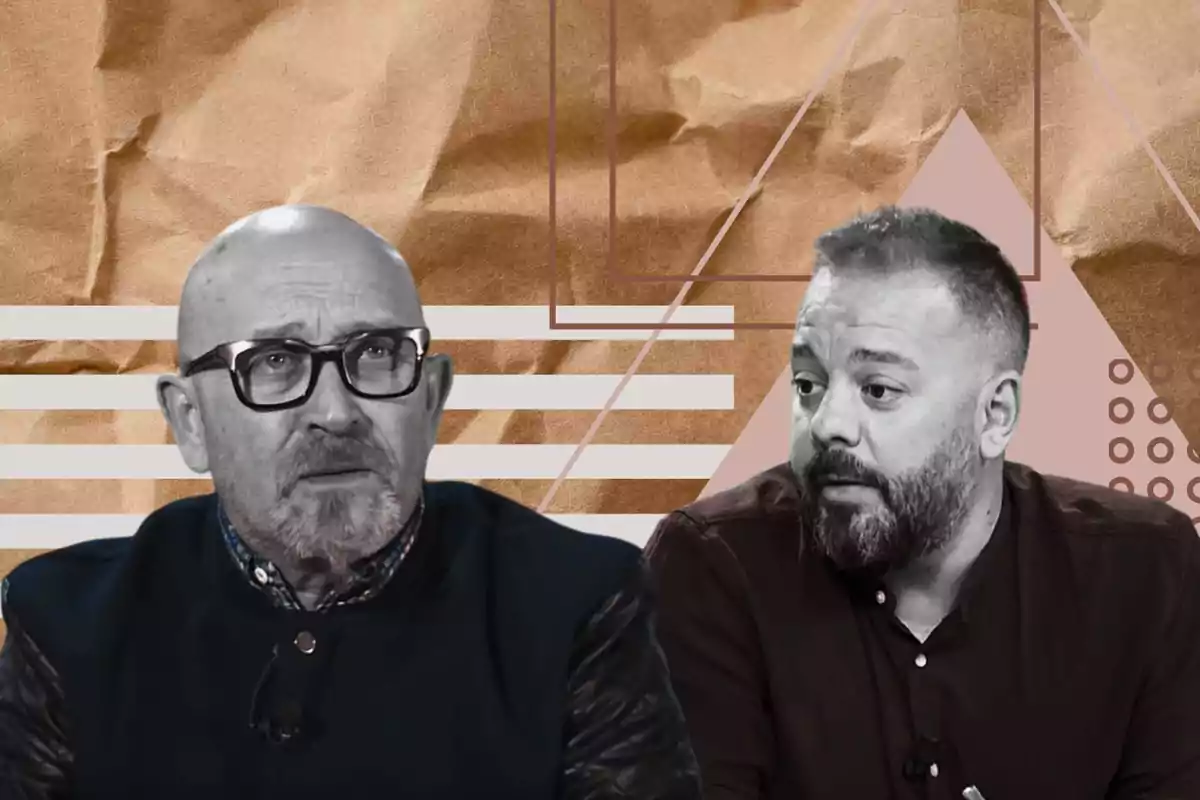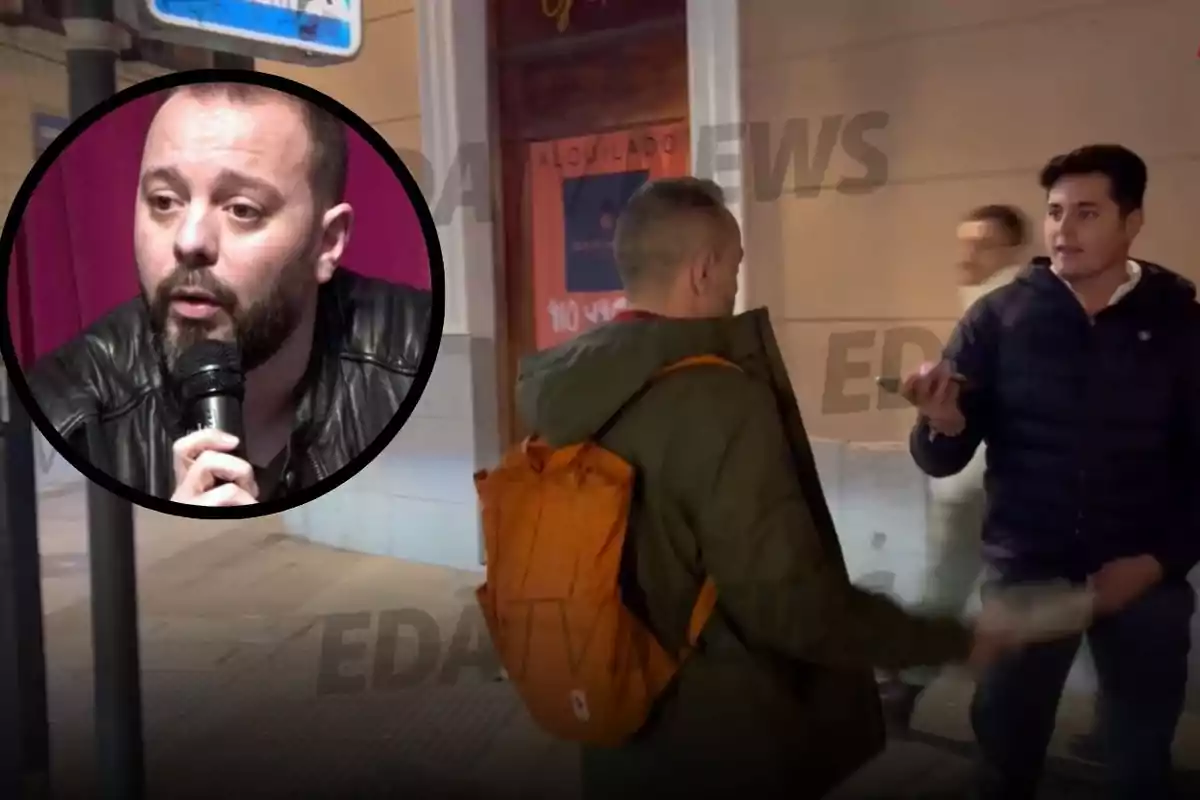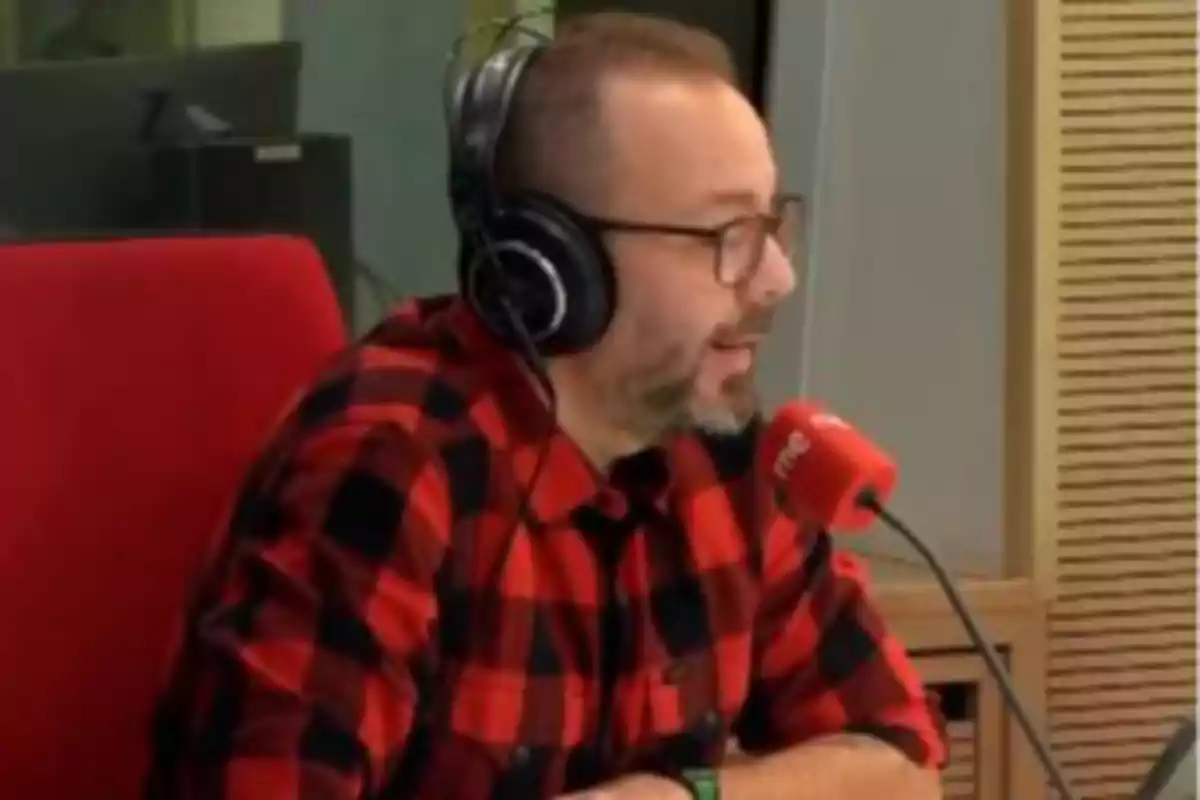
Antonio Maestre tried to assault a boss: "I'm here to give you two slaps"
Antonio Maestre, from the confrontation with Pedro Aparicio to the assault on Vito Quiles and Juan Pulido
The recent incident involving Antonio Maestre, where he attacked journalists Vito Quiles and Juan Pulido, has caused a great stir on social media.
The images of the journalist and panelist from La Sexta throwing Quiles's microphone, a violent act that didn't go unnoticed, have quickly gone viral, reaching over two million views.
However, this wasn't Maestre's first confrontation, as there's a precedent revealing similar behavior.
Pedro Aparicio, director of PR Noticias, witnessed a previous episode of hostility from Maestre when he was working as an editor at his outlet.
According to Aparicio, Maestre attempted to physically assault him in his office during a moment of great emotional turmoil.
The reason for this aggression was Maestre's annoyance with the director's professional attitude. Aparicio dared to correct him when he inserted political tones in articles that were supposed to be neutral.
This behavior led Maestre to confront the director, an episode that turned tense and violent. According to Aparicio, Maestre burst into his office intending to hit him, shouting: "I'm here to give you two slaps". Aparicio stood up from his chair and replied: "You're going to eat my dick".
Maestre not only felt frustrated by the corrections but also by Aparicio's attitude. Since the businessman was kind and willing to help the employees.
"Businessmen have to mistreat the worker and not be good people," Maestre allegedly told Aparicio, leaving him perplexed.
The situation ended with an aggressive verbal exchange, where Maestre told Aparicio he would go to a Podemos rally and never return.
This confrontation reflected Maestre's attitude toward those who didn't share his ideals, a pattern that seems to have repeated in his career and his participation in media.

The Attack on Vito Quiles and Juan Pulido
The recent incident with Quiles and Pulido has once again highlighted Maestre's explosive nature.
In the images of the attack, you can see how, after a verbal confrontation with the journalists, Maestre snatches Quiles's microphone and throws it. An act that was recorded live and widely shared on the internet.
The reactions on social media were swift, and most users condemned the communicator's violent attitude.
This episode has brought to the forefront a debate about the behavior of certain panelists in the media, especially those who adopt wingere positions on the political spectrum.
Maestre, known for his leftist stances, has earned a controversial reputation for his constant confrontations with other journalists and an aggressive style.
The attack on Quiles and Pulido is not an isolated case in Maestre's trajectory. On several occasions, his provocative style has caused conflicts with other members of the press.
While freedom of expression is an essential right, violence and intimidation should have no place in the professional sphere.
This type of violent attitude endangers not only the integrity of journalists but also the credibility of the media.
Journalists must be able to perform their duties without fear of reprisals or physical assaults. Society, for its part, must strongly reject this type of behavior and demand greater respect for the profession and the rights of those who practice it.

The incident with Maestre has also sparked a debate about the limits of political activism within the media.
In a context where the media has become increasingly polarized, professional ethics must prevail over political ideologies.
Objectivity and impartiality should be the essential principles guiding communicators, without implying acceptance of violence or harassment in any form.
More posts: